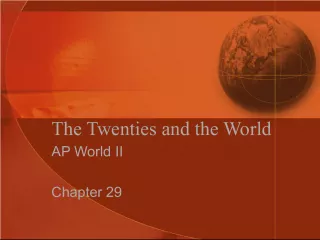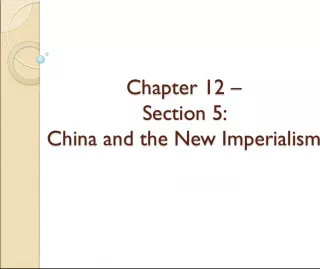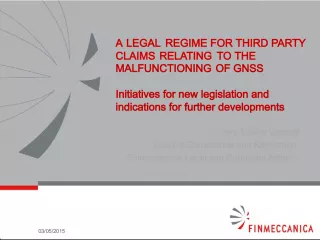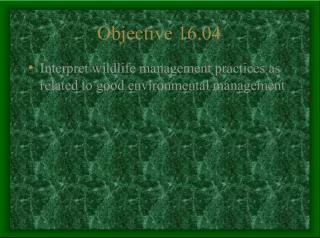Penitential Practices in Medieval Europe: The Burgundian Penitential
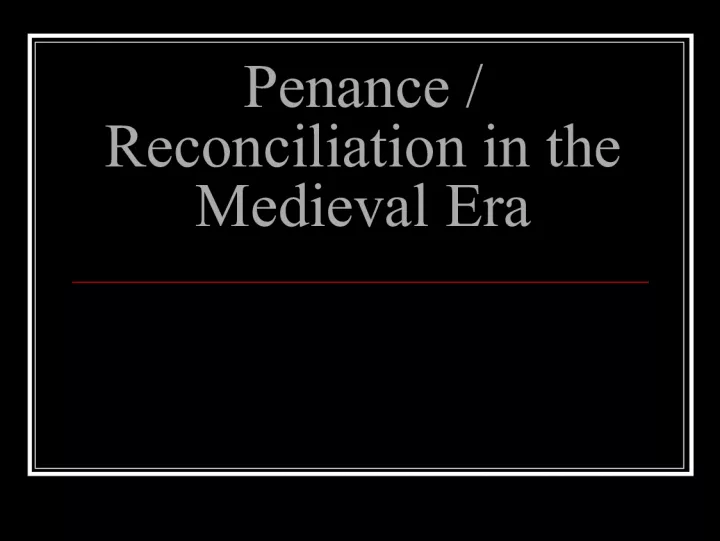

The Burgundian Penitential, written between 700-725 CE, outlined penitential practices in Medieval Europe for various sins such as homicide, fornication, and perjury. This article explores the penances prescribed and their significance in the medieval era.
- Uploaded on | 1 Views
-
 tessa13
tessa13
About Penitential Practices in Medieval Europe: The Burgundian Penitential
PowerPoint presentation about 'Penitential Practices in Medieval Europe: The Burgundian Penitential'. This presentation describes the topic on The Burgundian Penitential, written between 700-725 CE, outlined penitential practices in Medieval Europe for various sins such as homicide, fornication, and perjury. This article explores the penances prescribed and their significance in the medieval era.. The key topics included in this slideshow are Burgundian Penitential, penitential practices, Medieval Europe, sins, penances,. Download this presentation absolutely free.
Presentation Transcript
1. Penance / Reconciliation in the Medieval Era
2. The Burgundian Penitential (c. 700-725 CE) 2. If anyone commits homicide by accident, that is, not intentionally, he shall do penance for five years, three of these on bread and water. 3. If anyone consents to the commission of homicide, and [if] it is committed, he shall do penance for seven years, three of these on bread and water. But if he intends it and cannot do it, [two] of these on bread and water. 4. If anyone commits fornication as the Sodomites did, he shall do penance for ten years, three of these of bread and water, and never sleep with another. 5. If anyone commits perjury, he shall do penance for seven years, three on bread and water, and never afterward take an oath.
3. 6. If anyone commits perjury under compulsion, on account of some necessity, or unaware, he shall do penance for three years, one of these on bread and water. 7. If anyone commits a capital theft, that is, [steals] animals or breaks into houses or robs a well-protected place, he shall do penance for seven years, three of these on bread and water. He would commits a theft of small articles shall do penance for three years. 8. If anyone commits adultery, that is, with anothers wife or betrothed, or violated her virginity, if a cleric, he shall do penance for three years, one of these on bread and water; if a presbyter, seven years, three of these on bread and water. 9. If by his magic anyone destroys anybody, he shall do penance for seven years, three of these on bread and water.
4. 10. If anyone is a magician for love and destroys nobody, if he is a cleric, he shall do penance for an entire year on bread and water; if a deacon three [years], one of these on bread and water; if a priest, five [years], two of these on bread and water. Especially if by this anyone deceives a woman with respect to her child, each one shall increase [the penance] by five forty-day periods on bread and water, lest he be charged with homicide. 11. If anyone commits fornication with women, if a cleric, he shall do penance for three years; if a monk or a deacon, five years; if a priest, five [years]. 12. If any cleric [in lower orders] or one of any higher rank, who has had a wife, after his conversion or elevation has intercourse with her again, let him know that he has committed adultery. For this, if he is a deacon, he shall do penance for five years, two of these on bread and water; if a priest, seven, three of these on bread and water.
5. 13. If anyone commits fornication with a nun or a woman vowed to God, as in the above decision each shall do penance according to his order. 14. If anyone through concupiscence or lust commits fornication by himself, he shall do penance for an entire year. 15. If anyone is a violator of a tomb, he shall do penance for five years, three of these on bread and water. 16. If anyone lusts after a woman and is not able to sin with her of [if] the women refuses him, he shall do penance for an entire year. 17. If anyone neglects the Eucharist, that is, the communion of the body or of the blood of the Lord, and thereby loses it, he shall do penance for an entire year on bread and water.
6. 18. If he vomits it through drunkenness or gluttony, he shall do penance for the three forty-day periods on bread and water. If indeed [it is] through infirmity, he shall do penance for one week. 19. If any cleric or his wife overlays a baby, he [or she] shall do penance for three years, one of these on bread and water. 20. If, indeed, anyone is a wizard, that is, a conjurer-up of storms, he shall do penance for seven years, three of these on bread and water. 21. If anyone intentionally cuts off any member [of his body], he shall do penance for three years, one of these on bread and water. 22. If anyone, moreover, exacts usury from anyone, he shall do penance for three years, one of these on bread and water.
7. 23. If anyone by force or by any device in evil fashion attacks or carries off anothers property, he shall likewise do penance according to the above sentence and give liberal alms. 24. If anyone commits sacrilege (that is, they call augurs those who pay respect to omens) whether he takes auguries by birds or by whatever evil device [he does it], he shall do penance for three years on bread and water. 25. If any soothsayer (those whom they call diviners) makes any divinations, since this is also of the demons, he shall do penance for five years, three of these on bread and water. 26. If anyone strikes another and sheds blood, he shall do penance for forty days on bread and water. 27. If anyone is greedy or covetous or proud or envious or drunken or [if he] holds his brother in hatred or [is guilty of] other such offenses, which it is tedious to enumerate, he shall do penance for three years on bread and water.
8. 28. If anyone has what is called without reason the sortes sanctorum , or other oracles, or draws lots by any evil device or regards such practices with awe, he shall do penance for three years. 29. If anyone take a vow or absolves from one by trees or springs or lattices or anywhere except in a church, he shall do penance for three years on bread and water; for this also is sacrilege or of the demons. He who eats or drinks in these places shall do penance for a year on bread and water. 30. If after he has vowed himself to God any cleric reverts once more to the secular habit as a dog to his vomit or takes his wife, he shall do penance for ten years, three of these on bread and water, and [he shall] never afterward be joined in marriage. But if he refuses, a holy synod or the Apostolic See shall separate them from the fellowship and communion of all Catholics. Likewise also a woman, if after she has vowed herself to God she gives way to such a crime, shall undergo an equal sentence.
9. 31. If anyone commits a falsification, he shall do penance for seven years, three of these on bread and water. He who consents, moreover, shall do penance for five years. 32. If anyone practices any kind of hunting, a cleric shall do penance for a year, a deacon, for two years, and a priest, for three. 33. If anyone commits fornication with beasts, if he is a cleric, he shall do penance for two year on bread and water; if a priest, five years, three of these on bread and water. 34. If anyone [does] what many do on the Kalends of January as was done hitherto among the pagans, seats himself on a stag, as it is called, or goes about in the guise of a calf, he shall do penance for three years, for this is demoniacal. 35. If any woman intentionally brings about an abortion, she shall do penance for three years on bread and water.
10. 36. If anyone is a wizard, that is, takes away the minds of men by the invocation of demons or renders them mad, he shall do penance for five years, three of these on bread and water. 37. If he violates any virgin or widow, he shall do penance for three years on bread and water. 38. If anyone is an informer, which is abominable, he shall receive the sentence of the above canon. 39. If anyone by any device leads a slave or a man of any sort into captivity or conveys him away, he shall do penance for three years. 40. If anyone intentionally burns with first anybodys house or premises, he shall undergo the above sentence. 41. If anyone is in any way guilty of deception or neglect with respect to anything concerning the ministry of Holy Church or any other kind of work, he shall do penance for seven years, three of these on bread and water, and then be reconciled.
11. The Fleury Penitential (c. 775-800 CE) In the name of Christ here begins: An order for giving penance according to the tradition of the elder Fathers; [and] how a priest ought to receive the confessions of everyone. He is required to hold forth the word of salvation and to give the penitent an explanation: how the devil through his pride feel from the angelic dignity and afterward drove the man out of paradise, and [how] Christ accordingly for human salvation came into the world through the virgins womb and after his resurrection both conquered the devil and redeemed the world from sin and afterward gave the Apostles the grace of baptism by which he should deliver man from his sin; and that he who has sinned, if he does not do penance, shall be sent to hell to be tormented forever;
12. And he who gives his confession to the priests after the commission of an offense shall obtain eternal rewards; or how in the end of the age He shall come to judge the living and the dead (2 Tm 4:1; 1 Pt 4:5) and to render to each man according to his work (Mt 16:27). Let him be questioned as to his belief in the resurrection, or all those things that he is told, or whether he has faith of confession, by which to obtain pardon before God through the judgment of the priest. But if he confesses everything and does not doubt that there is a blessed life for the righteous in Paradise after death and that the Gehenna of fire is prepared for sinners, let him be questioned as to what he has done that causes him fear.
13. And when the man has given his entire confession, the priest himself shall prostrate himself before the altar with him, and confessing they shall repeat the psalms with groaning and if possible with weeping, and both, alike prostrate, shall say the passages: Turn to me, O Lord (Ps 6:5) and Our help is in the name of the Lord (Ps 123/124:8). And afterward he shall become O Lord, not in thy wrath I and II (Ps 6:1 and Ps 37/38:1) and Have mercy upon me, O God as far as blot out my iniquity (Ps 50/51:3) and Bless the Lord, O my soul I as far as your youth shall be renewed like the eagle (Ps 102/103:1-5) and the passage Remember not our iniquities (Ps 78/79:8).
14. And afterward let them rise up together and [let him be questioned] once more whether he believes that through his confession itself he obtains pardon; if he will do penance, and if he is willing to promise in words that in this matter he will observe as far as he is able whatever is meanwhile determined; or how he ought afterwards to abstain; if he is weak or not; and if he has given an answer on all matters. [E]ither a presbyter or a deacon shall say the collects over his head, and afterward, prostrate on the ground, he shall be commended to the Lord god of heaven, and they shall say the passage: Confirm this, O God (Ps 67/68:29).
15. And so thereafter he shall be treated according to his guilt and his devotion; or it shall be as far as possible indicated to him what definite time [of penance] he has or ought to observe; and the passage The Lord keep you from all evil (Ps 120/121:7) shall be said to him and you shall leave him.
16. Council of Florence: Decree for the Armenians (1439) The fourth sacrament is penance . Its matter is the acts of the penitent, which are threefold. The first is contrition of heart, which includes sorrow for sin committed, with the resolve not to sin again. The second is oral confession , which implies integral confession to the priest of all sins that are remembered. The third is satisfaction for sins in accordance with the judgment of the priest which is ordinarily done by prayer, fasting and almsgiving. The form of this sacrament are the words of absolution which the priest pronounces when he says: I absolve you. The minister of this sacrament is a priest with authority to absolve, which is either ordinary or by commission of a superior.





